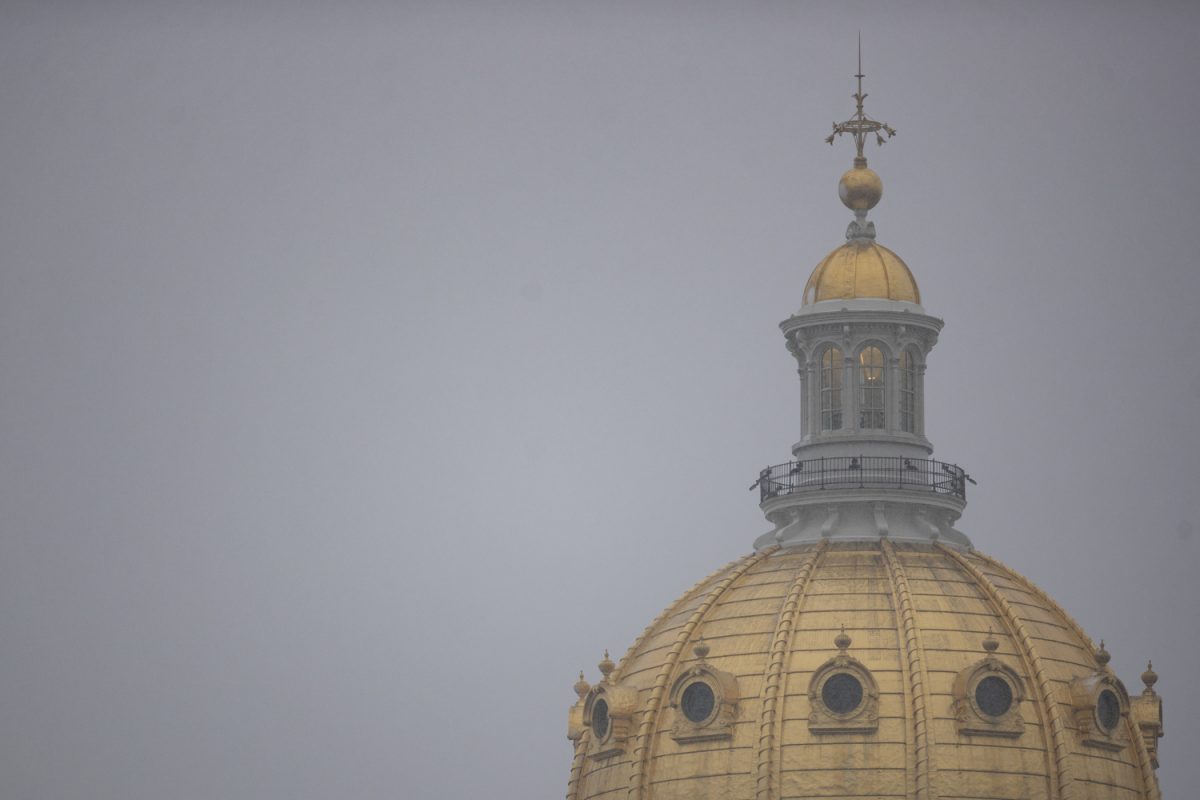Iowa House Republicans passed a bill Thursday to allow 3 percent of growth in supplemental state aid to public school districts, despite House Democrats urging that the increase is not enough.
House File 2613 was passed out of the House, 60-36, with only Republicans in support on Thursday afternoon, the bill goes to the Senate next. The 3 percent increase will increase the state spending per student by $229, raising the total cost per student to $7,864.
The bill establishes a state percent growth of 3 percent for the budget year beginning July 1, 2024. This percentage is used to calculate the amount of supplemental state aid received by a school district in a budget year.
Public school districts in Iowa receive supplemental state aid, or SSA, combined with local property tax levy revenue as funding. The bill will extend the property tax replacement payment an additional year.
The House’s proposed rate is higher than Iowa Gov. Kim Reynolds’ proposal of 2.5 percent, but still below the Iowa State Education Association’s SSA recommendation of 4 percent.
During the House floor debate, Rep. Sharon Sue Steckman, D-Mason City, proposed an amendment to boost the increase to 6 percent.
Steckman said the 6 percent would give schools $300 million in new money, which matches the new money given to vouchers for private schools.
Increasing supplemental state aid by 3 percent would raise property taxes for 116 districts, while a 6 percent increase would result in only 34 districts raising these taxes, Steckman said.
Rep. Phil Thompson, R-Boone, who introduced the bill, said the amendment puts the House past their target for this year in education spending.
Thompson said the bill can be put into context with other pieces of the “education funding puzzle” brought forward this year, such as increases to teacher salaries, para educator pay, and school security infrastructure.
The bill was passed without the amendment, despite receiving heavy support from Iowa House Democrats.
Last legislative session, Iowa lawmakers passed a supplemental state aid growth of 3 percent.
Iowa House lawmakers approve up fines for open meeting violations
Iowa House lawmakers nearly unanimously, 92-2, approved a bill to increase fines for open meetings and open records violations on Thursday.
Under House File 2539, violating Iowa’s open meeting laws by accident would be punishable with a fine between $1,000-5,000, which is up from $100-$500. If the violation is intentional, the fine would increase from $10,000 to $25,000. The law would also mandate education on Iowa’s public records and open meeting laws for newly elected officials.
The bill comes on the heels of Davenport’s violation of open meetings law after now-retired city attorney Tom Warner entered into settlement agreements with city employees — without prior approval from the city council — in an open meeting.
According to The Quad City Times, the council approved the settlements in an open meeting in a 6-1 vote, after discussing the settlement in a closed session.
Rep. Gary Mohr, D-Bettendorf, said the discussions about public records and open meetings following the collapse of a Davenport apartment building reminded him of longtime Quad City Times columnist Bill Wundram. Wundram often asked “Is anyone there?” asking if anyone cared about the city.
According to a non-partisan Fiscal analysis by the Legislative Services Agency, the bill would require an additional Full Time Employee at the Iowa Public Information Board for $104,000.
“Yes, Bill, some of us are there. Some of us do care,” Mohr said. “And ladies and gentlemen of the house: we’re either going to have open, public records in this state or not.”
Rep. Adam Zabner, D-Iowa City, said he appreciated the efforts to increase training for public officials on open meetings and open records laws.
“I think every Iowan deserves to know what’s happening with their government in conversations about this bill,” Zabner said. “It’s become clear that many people in local government don’t understand the requirements under the law.”
Rep. Brent Siegrist, R-Council Bluffs, said some might find the training requirements to be a nuisance but a worse nuisance is open records and meeting violations.
“The real nuisance is when we have violations time and time again under the open records and open meeting laws in the state,” Siegrist said. “We ought not to tolerate this. We will make sure that we take giant steps to make sure we have the most transparent government we can in the State of Iowa.”



